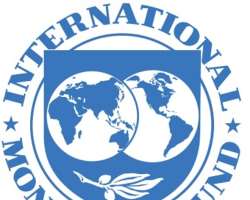IMF Executive Board Concludes 2015 Article IV Consultation with the Republic of Equatorial Guinea

MALABO, Equatorial Guinea, July 23, 2015/African Press Organization (APO)/ -- On July 20, 2015, the Executive Board of the International Monetary Fund (IMF) concluded the Article IV consultation1 with Equatorial Guinea.
Equatorial Guinea's recent economic performance has been weak, notwithstanding the high quality infrastructure that has been built. Overall real GDP growth has averaged about -½ percent from 2010–14, mainly driven by the trend decline in hydrocarbon production. Until recently, growth in the non-resource sector, led by the large infrastructure spending program, largely compensated for the declining hydrocarbon sector. The fiscal position has come under strain, as overruns on capital investment translated into larger-than-expected overall deficits financed through a drawdown of accumulated government savings. The current account deficit has progressively increased to around 10 percent of GDP by 2014 as a result of lower exports from maturing hydrocarbon fields combined with high import levels associated with the public infrastructure program, although there is considerable uncertainty about this figure given very weak external sector statistics. Consumer price inflation (CPI) has averaged about 4 percent in recent years, above the 3 percent regional convergence ceiling set by the Economic Community of Central African States (CEMAC).
The growth outlook poses very significant challenges with prospects dominated by falling production volumes and very weak oil prices, as hydrocarbons account for around 80 percent of the economy. With limited fiscal buffers to cushion the drop in government revenues, fiscal retrenchment is unavoidable, and will contribute to an economic contraction of 9½ percent in 2015, and growth is expected to remain in low negative figures through the medium term. The gradual decline in oil output will likely continue in coming years, but may potentially be somewhat mitigated by the introduction of new extraction technologies and ongoing exploration.
The main near-term risk to the economic outlook is a slower-than-expected fiscal adjustment that could result in the depletion of fiscal buffers and accumulation of public debt. Moreover, an insufficient effort to address a weak business climate and attract foreign investment would impede diversification and potential non-hydrocarbon growth.
Executive Board Assessment2
Executive Directors agreed with the thrust of the staff appraisal. They welcomed the government's significant efforts to implement an ambitious program of development and structural transformation under its National Development Plan, Horizonte 2020, which has upgraded basic infrastructure all over the country. Nevertheless, the program has yet to achieve its potential in terms of economic diversification and job creation, and Directors observed that the economy is facing serious challenges from a trend decline in hydrocarbon production and the recent fall in oil prices. Given the country's large dependence on hydrocarbon revenues and declining fiscal buffers, Directors emphasized the need to restore fiscal space, strengthen financial management, foster economic diversification, and improve social welfare to support inclusive growth.
Directors underscored the need for fiscal adjustment and welcomed the government's planned response to the oil shock. The fiscal measures introduced in 2014 and the revised 2015 budget appropriately focus on strengthening spending controls and frontloading reductions of the disproportionately large capital investment, while shifting resources toward the social sector. Directors advised the authorities to focus on enhancing non-hydrocarbon revenue mobilization, notably by reducing tax exemptions and modernizing customs administration. Directors also recommended reforms to strengthen public financial management, including more frequent meetings of the National Payments Committee and reinforced mechanisms for selecting, executing, and monitoring capital projects.
Directors noted that while Equatorial Guinea had largely eliminated the constraints to growth from poor infrastructure, there was a need for structural reforms to boost competitiveness and support external stability. They considered it a priority to accelerate reforms targeting the weak business climate and human capital development.
Directors underscored the importance of preserving financial stability and deepening financial intermediation. Given the weakening fiscal position and the elevated level of non-performing loans, macro-financial linkages need to be closely monitored and the government's payment arrears promptly cleared. Directors also saw scope for updating the banking infrastructure by improving the operation of credit and collateral registries, and strengthening creditor rights enforcement.
Directors emphasized the need to improve Equatorial Guinea's very weak socio-economic statistics. They noted that data provided to the IMF has serious shortcomings that significantly hamper surveillance. At the same time, the lack of published data could impede prospective foreign investors. In this context, they welcomed the efforts to make operational the National Statistics Institute (INEGE), and encouraged the authorities to invest in capacity building and subscribe to the IMF's General Data Dissemination Standards (GDDS).
It is expected that the next Article IV consultation with the Republic of Equatorial Guinea will be held on the standard 12-month cycle.
